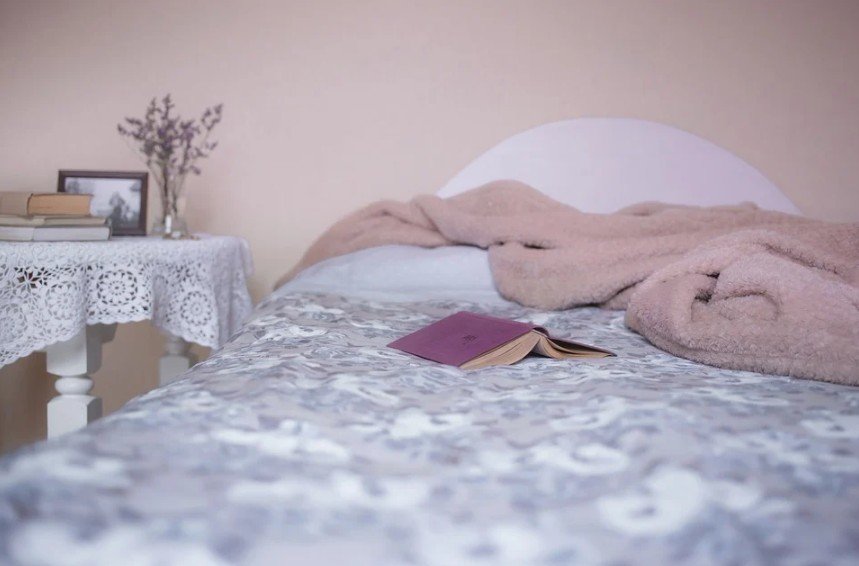You have not rested, but you are already thinking about tomorrow, all the things needed to be done: deadlines, quotas, house chores, and so on. There are a lot of things going on inside your head.
Your activities before bed have a significant impact on what your subconscious mulls over while you sleep, and into your mental state when you wake up the next day. Research suggests that studying before bedtime can significantly improve your recall of that information later.
Thinking of how not to think or emptying your thoughts may sound so easy, but turning your mind off is a challenge when you’re stressed or anxious. Spending time even for just a few minutes, reflecting at the end of each day, can have a significant impact on your future. A short time before you close your eyes can be crucial to your success.
Here are some of the simplest yet effective nightly routines you can do to help you relax and fall asleep more quickly and be better prepared for the next day.
1. Note down on your diary, at least 3 things you have accomplished successfully, and 3 things that didn’t work well.
Make a quick review or flashback of the day. Focus more on the things that went well and savor it on your mind. By doing so, it keeps you away from dwelling on the troubles on that day. Taking time to see the good in each day helps you appreciate the improvement you are making. It also makes you exercise the virtue of gratitude for all you have.
On the other side, thinking of the troubles isn’t always bad if your purpose is to find ways to avoid them next time and be better.
Make time for both events: bad and good but focus more on the good things as it grows your attitude of gratitude that leads to growth. You can enjoy about 5 minutes for this routine.
2. Make tomorrow’s to-do list.
A to-do-list doesn’t only keep you from missing out important things, but it also helps you manage and spend time efficiently. To get a clear sense of what tomorrow looks like before the day ends, this routine helps a lot though often neglected.
An organized to-do list ensures you wake up with a purpose and will set an organized day. This will set your mind at ease before sleeping. The wind won’t just easily blow you without knowing where you’re heading for the next day. Write them all down, so you can relax.
Making a to-do-list before bed gives your subconscious a chance to ponder on ideas throughout the night.
3. Take a warm shower or soak in the bathtub.
Water has natural ways to make you feel relax and calm. And since the purpose of bedtime routines is to relax and de-stress, taking a warm or hot shower can do wonders and will help you soothe your mind, especially on nights when you need extra help loosening up and calming down.
Perhaps, it’s the reason why a lot of people do most of their thinking and meditation while in their bathtubs or having showers. Immersion in water is known to have a therapeutic effect and can help you detach from technology’s hyper-connectedness. Try it!
4. Set out what you need for tomorrow.
If you always have a hectic day, some tasks like laying out tomorrow’s clothes the night before, or having lunch made and ready to grab and go, can be a good routine. It does not only save you time but lessens your loaded mind of the things you need to do the next day. These little rituals help us relax for sleep.
When you get your day going smoothly, it boosts your confidence to face the world: lunch in hand and shoes that match your dress.
5. Meditate.
Whatever way you do your meditation, either with a relaxing soft instrumental music, reading an inspirational book, praying, doing yoga, etc. It allows your mind to find peace amid the chaotic day.
Meditation allows space and perspective to calm those racing thoughts that hinder you from a good night’s sleep. Meditation needs discipline, mastery, and patience, and the best way to achieve it is through consistency!
6. Planning for plenty of sleep.
Of course, your main goal for all these routines is to have quality sleep to restore your strength for the next day. Do not overspend time for any of these routines and just leaving a little time to sleep.
The National Sleep Foundation recommends that adults get between seven and nine hours of sleep a night. Practice a particular time for sleep, so your circadian rhythm just prompts you when it’s time to go to bed and sleep. Eventually, you will just fall asleep easily.


